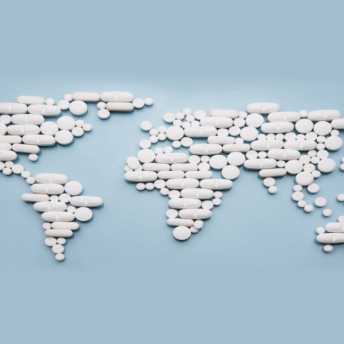Dr. Ulrica Sehlstedt
Ulrica brings over 20 years of broad-sector experience to serving clients across the entire healthcare and life science ecosystem.

Areas of Focus
Education
Past Experience

Ulrica is a Partner in Arthur D. Little’s Stockholm office and heads the Global Healthcare and Life Sciences Practice.
Her work includes strategy development, opportunity assessment, complex procurement, operational & commercial due diligence, change management, and program management, for healthcare suppliers (pharma, Medtech, and biotech companies), providers (public and private), and investors.
Ulrica is passionate about the role of life science research and development as a lever for prosperity and health.
Before joining Arthur D. Little in 2007, Ulrica spent seven years as CEO of a molecular diagnostics start-up. She has also been a member of the Swedish Research Council’s Scientific Council for Medicine for six years, and served as a Member of the 2007 and 2016 national expert panels in Life Science Technologies for Future Research Leaders, a program launched by the Swedish Foundation for Strategic Research.


Time to renew your pilot’s license?


COVID-19 – FOCUSING ATTENTION ON THE NEXT TRANSFORMATION IN HEALTHCARE

Hyper-collaboration in the healthcare and life science industry – The new imperative

Data-driven Healthcare


Transforming healthcare – How curative therapies will disrupt the market

Transforming medical technology businesses to create value with digital

Ulrica is a Partner in Arthur D. Little’s Stockholm office and heads the Global Healthcare and Life Sciences Practice.
Her work includes strategy development, opportunity assessment, complex procurement, operational & commercial due diligence, change management, and program management, for healthcare suppliers (pharma, Medtech, and biotech companies), providers (public and private), and investors.
Ulrica is passionate about the role of life science research and development as a lever for prosperity and health.
Before joining Arthur D. Little in 2007, Ulrica spent seven years as CEO of a molecular diagnostics start-up. She has also been a member of the Swedish Research Council’s Scientific Council for Medicine for six years, and served as a Member of the 2007 and 2016 national expert panels in Life Science Technologies for Future Research Leaders, a program launched by the Swedish Foundation for Strategic Research.


Time to renew your pilot’s license?


COVID-19 – FOCUSING ATTENTION ON THE NEXT TRANSFORMATION IN HEALTHCARE

Hyper-collaboration in the healthcare and life science industry – The new imperative

Data-driven Healthcare


Transforming healthcare – How curative therapies will disrupt the market

Transforming medical technology businesses to create value with digital
More About Ulrica
- Stockholm UniversityPhD Biophysics
- Chalmers University of TechnologyM.Sc. Chemical Engineering
- LightUp Technologies ABCEO
